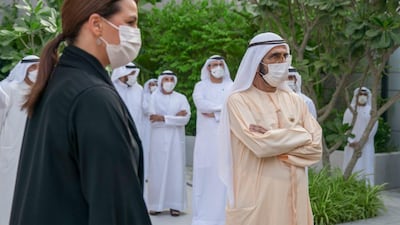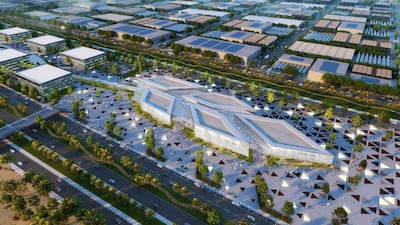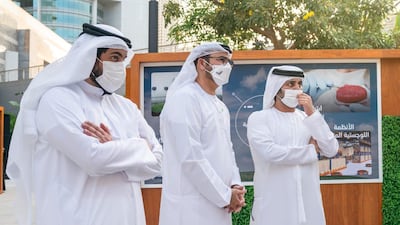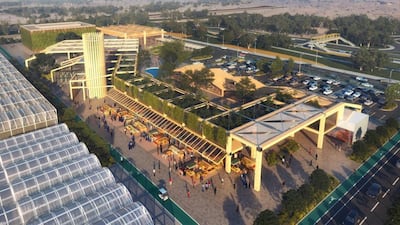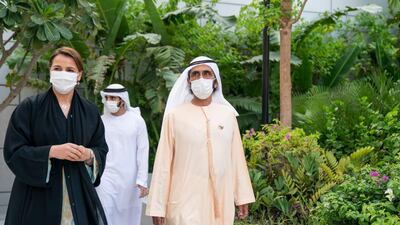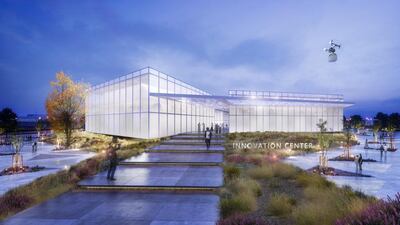The UAE's investments and policies in climate action over the last 15 years have "quickly paid off".
Hana AlHashimi, who heads the office of UAE Special Envoy for Climate Change, Dr Sultan Al Jaber, said the UAE is continuously reviewing its strategy anddriving forward sustainable development goals.
She said the UAE regards climate-friendly policies as a market opportunity, not an imposition.
"Climate action is certainly at the centre of the UAE's economic growth and diversification strategy, and our investments and policies over the last 15 years have quickly paid off," she said.
The clean energy sector and agricultural innovation are two main areas where the Emirates seeks to drive change.
The Hope probe to Mars will support the UAE's mission to research and reduce global warming, said Ms AlHashimi in an online seminar hosted by the US-UAE Business Council where she called on the private sector to partner with the Emirates on green technology.

So far, the US, the EU, Japan and Korea, together with more than 110 other countries, have pledged carbon neutrality by 2050 with the purpose of keeping global warming below an average of 2° Celsius.
Also attending the webinar was David Livingston, senior adviser to John Kerry, US special presidential envoy for climate.
Mr Kerry visited the UAE last week, for the second time since he took up office, for talks with the Sheikh Mohamed bin Zayed, Crown Prince of Abu Dhabi and Deputy Supreme Commander of the Armed Forces.
Mr Livingston said the UAE was an important partner for the US on climate change.
"There's a recognition of the unique role that the UAE plays in the region – as among hydrocarbon-rich economies and producers.
"The UAE's greatest contributions to the climate challenge will come from decarbonising its own economy, scaling up the deployment of renewables and setting an example in that sense for the rest of the world.
"But also [its contribution] in terms of the innovations, the technologies that it develops, and in the way that it can reach emerging economies and major economies around the world, with some of those innovative solutions and models."
Need for speed
The UAE's enthusiasm to grasp the nettle of climate change was also mentioned by Mr Livingston.
"It's important to maintain a dialogue with partners that are willing to move fast, to move at a pace that the United States is looking to move that," he said.
"The Middle East is a part of the globe that is warming at twice the rate of the Earth's average warming. So it will bear the brunt of these challenges."
Both webinar guests spoke of the importance of the private sector in increasing investment and innovation in green technology.
Agriculture was identified as a key sector for eco-friendly growth, in particular in the UAE, where the country recently launched the first phase of Food Tech Valley, which aims to triple food production.
The Emirates has also invested heavily in solar energy, and more recently in green and blue hydrogen production, which are considered more sustainable than fossil fuels.
Ms AlHashimi said: "If I can give you one proof point – we have broken the world record for solar multiple times, and it's actually now the cheapest daytime power source in the Middle East, which enables industries and businesses to enjoy lower input costs and a smaller environmental footprint.
"This is really significant. Investment in solar power strengthened our economy and paved the way to a greener future.
"Now, the UAE is well positioned to take advantage of the new wave of green investment opportunities."


















